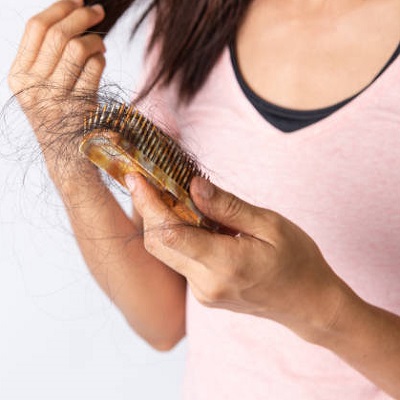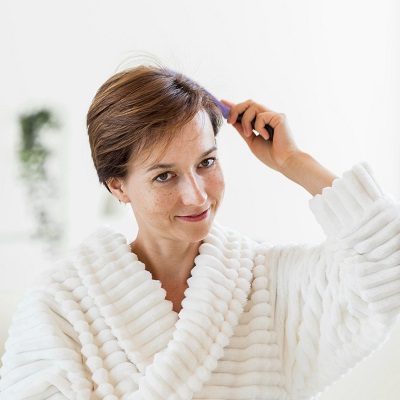
Regular exercise is really crucial for leading a good life. Moreover, an important part of living a healthy life is getting enough exercise. Furthermore, it helps you stay at a healthy weight and gives you more energy. Additionally, it boosts your happiness and even helps you sleep better at night. However, Does Your Workout Routine Affect Your Hair Loss? Therefore, this blog delves further into the connection between hair loss and fitness. Furthermore, it will discuss reasonable causes, impacts on hair quality, and strategies to minimise any negative consequences.
Understanding Exercise and Hair Condition
A lot of people think that exercise makes hair loss worse. This is because of hormones, especially testosterone. Moreover, it is likely that you will know it as the male sex hormone. But both men and women have testosterone; the amounts they have are different and are called T levels.
Several studies on both men and women have shown that exercise may raise T levels, even if only briefly. That doesn’t seem like a big problem. Moreover, one type of testosterone, though, can change into dihydrotestosterone (DHT). DHT shrinks hair cells and makes it harder for hair to grow.
Does Your Workout Routine Affect Your Hair Loss?
People usually ask the question Does Your Workout Routine Affect Your Hair Loss? Going to the gym every day probably won’t change how hairy your head is. Not many studies have found a link between working out and losing hair. The largest observational study of its kind on hair loss and exercise found no links between the types or levels of hair loss and the amount of exercise.
Moreover, forms of telogen effluvium induce exercise-related hair loss. Furthermore, this condition results from rapid changes in the hair growth cycle brought on by stress in the body or the psyche, such as from intense physical exertion. Usually, three months after the incident triggers hair loss, individuals begin to see it. Pulling or tension on the hair shafts over an extended period causes traction alopecia—hair loss over time. Tight hairstyles, including bands, ponytails, or headgear used while exercising, might cause this.
Factors Influencing Hair Loss Resulting from Exercise
A few factors could lead to hair loss during physical activity:
- Working out long or hard might increase cortisol levels, altering hair growth patterns.
- Not obtaining enough of several nutrients, such as protein, iron, and vitamins (including B vitamins), may damage the quality of your hair and aggravate hair loss connected to exercise.
- Dehydration may make it more difficult for blood to reach the head, therefore damaging hair follicles and aggravating hair loss or thinning.
- Because of genes, people who have a family history of hair loss might be more prone to losing their hair while exercising.
Keeping Your Hair Healthy While You Work Out
Read these ideas to avoid exercise-related hair loss and enhance the overall state of your hair:
- Eat enough protein, vitamins (particularly B vitamins), minerals (such as iron and zinc), and antioxidants to help your hair grow and remain strong.
- Ensure you drink enough water before, during, and after exercise to maintain the health of your hair and skin.
- Take gentle care of your hair. Avoid wearing tight hairstyles or caps that tug on your hair strands. Select loose hair products that distribute pressure fairly across the head.
- After working out, gently wash your head to maintain a clean, free of perspiration and grime scalp. This will prevent clogging of the hair follicles and irritation of the scalp.
Final Thoughts:
In essence, exercise is vital for your overall health and well-being; however, it is also crucial to be aware of how it might impact your hair. Knowing the factors behind exercise-induced hair loss helps individuals reduce their risks and maintain a healthy balance between their fitness objectives and hair care. By following a whole strategy, including excellent food, keeping hydrated, and skin care, people may maximise their benefits from exercise and maintain their hair healthy. Based on your requirements and concerns, a dermatologist or other medical practitioner may provide you with individual recommendations and guidance.
Consult with an expert at Dynamic Clinic Pk for advice on hair transplantation and its long-term results.



